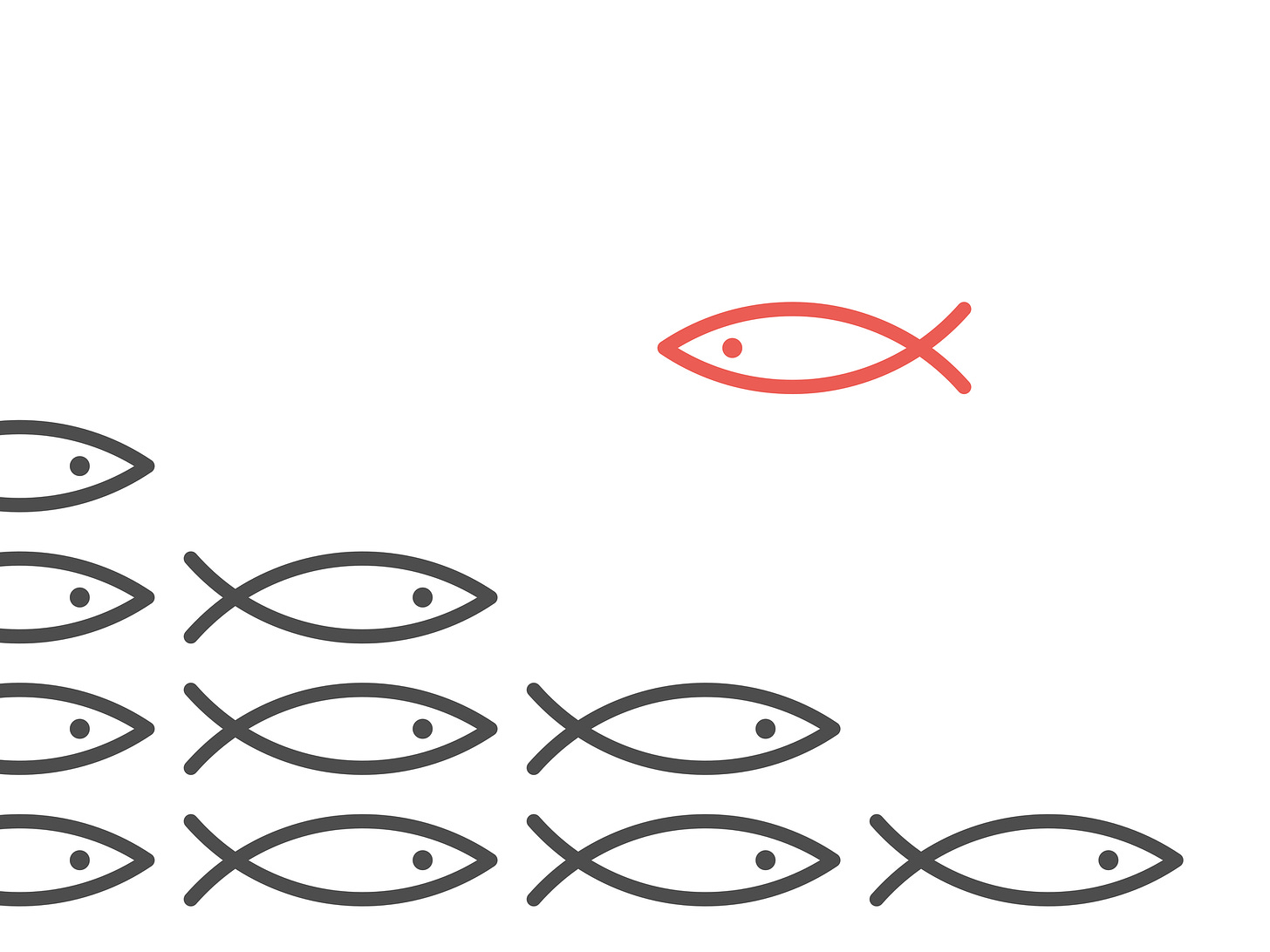briefly, on selling writing
I have a long piece on writing as a profession coming up next week that will say most of the stuff that I want to say to young writers. It will get into some industry details by necessity but I don’t want that piece to wallow in the interminable conversation that’s captured media the last several weeks. So here are a couple points that I’d like to get out of the way.
When people get mad about this newsletter, what they’re getting mad about is the fact that I have an audience and that a sufficient portion of that audience will pay for my writing that I can do this as my primary means of income. That’s what’s behind all of the heat Substack people are catching lately: they have organic audiences who are willing to follow them and to shell out a little money to do so. The Substack Pro program has muddied those waters because it’s convinced people that Substack is giving people it “likes” money they don’t deserve. But Substack is a business. It created Substack Pro to make money. And it is making money, as Scott Alexander and Matt Yglesias show. As hard as this will be for some to believe, my deal too will almost certainly be in the black for Substack in short order, as subscriptions have moved faster than I would have expected. (And thank you all.) A company making money off of you is the opposite of that company giving you a gift. Of course, for me the security of the advance made all the sense in the world.
For 13 years I’ve built an audience. They are small but they are loyal and they are generous. I know many by name; some of them email me after everything I publish. My writing offers something they don’t find elsewhere, including in traditional media. You can be mad that I’ve built that audience, but this is how a market functions. And it turns out that sometimes it’s more important to have a small audience of loyalists who want to read just you than to have an audience of millions for which you are just one face in a large interchangeable masthead. Many in professional writing want my past to bar me from financial stability. But I have repeatedly explained myself and apologized to my audience, and they have forgiven me and we have moved on together. You don’t have to share their values. But they don’t have to share yours.
For a long, long time the only important thing about getting a job in media, besides coming from money and the Ivy League, has been the opinions of your peers. That’s how careers have been made: you get professional security to the degree that other writers like you. Almost all professional writers engage with Twitter literally from the time they wake up to the time they go to sleep, and they do because they know that the real work of their career is performed there, the performance of making other writers like them with flattery, tired humor, the right community-approved politics, and timely application of the retweet button. This is straightforwardly disastrous if you prize originality, self-criticism, and free thinking. But it’s how the NYC media sausage gets made.
One consequence of this has been that your actual writing has had essentially no impact at all on your professional prospects. There are so many writers in news media whose work has literally nothing to distinguish it - not prose, not insight, not inside knowledge, not useful reporting, not expert opinion, nothing. They offer only the same blend of worn-out Weird Twitter-era jokes and identical woke politics as every other writer. So they have no way to distinguish themselves in a market. They have been protected by the Media Twitter game so far. But media is in very deep financial trouble. And you can only hide for so long. The question is, do you trust your ability to put your writing out on an open market and have that be your one ticket to financial security, as I and others have done? If you don’t, are you really a writer at all?
If I didn’t sell writing here, I’d sell it somewhere else. My audience would come with me. It’s an incredible blessing and I treasure each of them. You should try it sometime.




